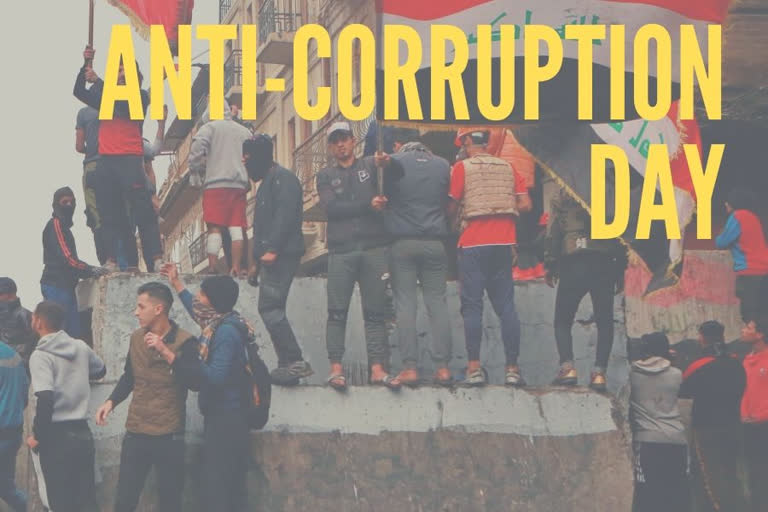Hyderabad: International Anti-Corruption day is observed on 9th December to urge nations, citizens and other stakeholders to unite in the fight against bribes and corruption, which harms the developmental prospects of the world.
According to the United Nations Sustainable development goal of 2030, the global fight against corruption is to ensure precious resources are meant to serve the peoples of the world.
India observed its first International Anti Corruption Day in 2006 when it became a signatory of the UN Convention against Corruption. According to the UN, corruption is a complex social, political and economic phenomenon that affects all countries and undermines democratic credentials, slows economic growth and contributes to government instability.
It is a well-known fact that corruption attacks the electoral process and increased bureaucratic cob-webs. Also, it stunts economic development and affects the small businesses within the country. it hampers the investors' sentiment and the result is poor Foreign Direct Investment (FDI).
Governments, the private sector, non-governmental organizations, the media and citizens around the world are joining forces to fight this crime. The United Nations Development Programme(UNDP) and the United Nations Office on Drugs and Crime (UNODC) are at the forefront of these efforts.
In a message to the nation, UN Secretary-General said that trillions of dollars – the equivalent of more than five per cent of global Gross Domestic Product (GDP) – are paid in bribes or stolen through corrupt practices that seriously undermine the rule of law and abet crimes such as the illicit trafficking of people, drugs and arms.
Tax evasion, money laundering and other illicit flows divert much-needed resources from schools, hospitals and essential infrastructure; funds that are essential to advancing the Sustainable Development Goals.
The theme is "United Against Corruption", a multi-year theme since 2017. The theme for 2014/15 was "Break the Corruption Chain".
Corruption in India
Corruption has multiple faces including bribery, embezzlement (misappropriation of funds), influence peddling (using influence to carry out illegal practice), money laundering, illicit enrichment and obstruction of justice.
According to the Corruption Perceptions Index 2018, which ranks 180 countries by their perceived levels of public sector corruption, India ranks as 78th least corrupt countries, a dismal low. India ranked at 81 and 79 in 2017 and 2016 respectively.
Legal provisions to curb corruption
•Section 169 of the Indian penal code pertains to a public servant unlawfully buying or bidding for the property. The public servant shall be punished with imprisonment of up to two years or with fine or both. If the property is purchased, it shall be confiscated.
•Section 409 meanwhile pertains to criminal breach of trust by a public servant. The public servant shall be punished with life imprisonment or with imprisonment of up to 10 years and a fine.
• The Prevention of Corruption Act, 1988, expanded the definition of "public servants" to include office bearers of cooperative societies receiving financial aid from the government, employees of universities, Public Service Commission and banks.
•If a public servant takes gratification other than his legal remuneration in respect of an official act or to influence public servants is liable to a minimum punishment of six months and maximum punishment of five years and fine.
•Any person who enters into a Benami transaction shall be punishable with imprisonment of up to three years and/or a fine.
•The Prevention of Money Laundering Act, 2002 states that an offence of money laundering has been committed if a person is a party to any process connected with the proceeds of crime and projects such proceeds as untainted property.
If the nation doesn't fight the crime of corruption, the dream of sustainable development and 5 trillion economy will remain the pipeline in the near future.
Read: Exclusive: IFS officer Sanjiv Chaturvedi talks about his crusade against corruption



